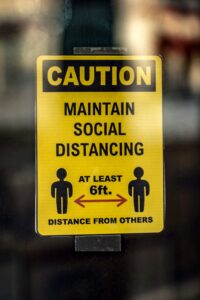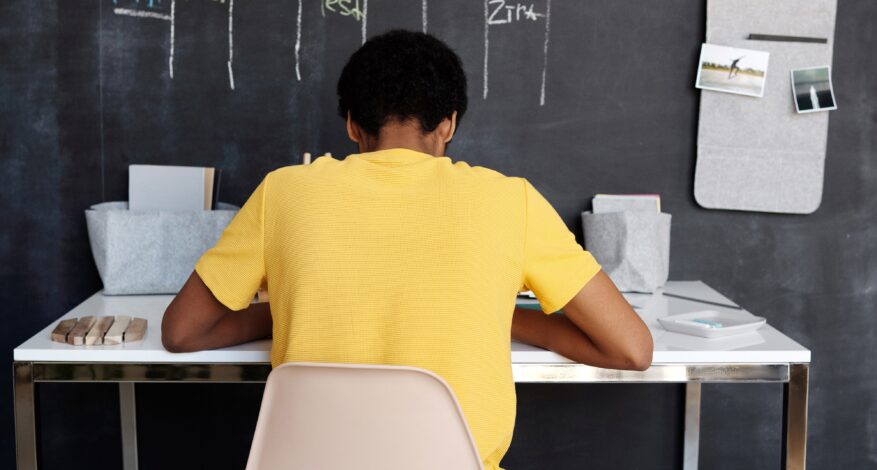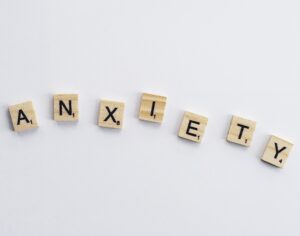IT’S OKAY NOT TO BE OKAY
IS THE PANDEMIC AFFECTING OUR MENTAL HEALTH?
The spread of COVID-19 has forced Governments to adopt guidelines that have radically changed everyone’s daily life. Among the many issues linked to the pandemic, one of the less visible but most significant ones is its effect on people’s mental health.
SOCIAL DISTANCING AND USE OF ANTI-ANXIETY MEDICATIONS
 Since it soon became clear that the more people one gets in contact with, the more they are exposed to the virus, the global population is asked to follow social distancing guidance. This method has proven to be especially effective to reduce and slow contagion. However, the repercussions on people’s psychological states are alarming. According to research on the psychological impact of quarantine, after 10 days of isolation people report exhaustion, detachment from others, anxiety, and symptoms of psychological distress. This is an understandable consequence of being separated from loved ones and being deprived of liberties. People did not have the time to get used to and adapt to this new reality: all of this fell unexpectedly into our lives almost overnight. Consequently, the use of anti-anxiety medications has grown exponentially. The Italian Medicines Agency AIFA has published data regarding the purchase of medicinal products during the pandemic. Anti-anxiety medications are used to reduce the symptoms of anxiety and even facilitate sleep. The data about the use of anxiolytics during the pandemic is not to be overlooked: more and more people are using anti-anxiety medications and the trend is rising.
Since it soon became clear that the more people one gets in contact with, the more they are exposed to the virus, the global population is asked to follow social distancing guidance. This method has proven to be especially effective to reduce and slow contagion. However, the repercussions on people’s psychological states are alarming. According to research on the psychological impact of quarantine, after 10 days of isolation people report exhaustion, detachment from others, anxiety, and symptoms of psychological distress. This is an understandable consequence of being separated from loved ones and being deprived of liberties. People did not have the time to get used to and adapt to this new reality: all of this fell unexpectedly into our lives almost overnight. Consequently, the use of anti-anxiety medications has grown exponentially. The Italian Medicines Agency AIFA has published data regarding the purchase of medicinal products during the pandemic. Anti-anxiety medications are used to reduce the symptoms of anxiety and even facilitate sleep. The data about the use of anxiolytics during the pandemic is not to be overlooked: more and more people are using anti-anxiety medications and the trend is rising.
CHALLENGES FOR YOUNG PEOPLE DURING THE PANDEMIC
 The pandemic affects people of all ages, without exception. Unfortunately, young people all over the world have seen their daily lives being disrupted due to the coronavirus outbreak. From being far from their friends, having economic difficulties, and not being able to access face-to-face learning to having their plans and projects for the future cancelled. The most radical change the majority of young people had to deal with occurred when authorities decided to close schools. The school does not only represent the institution where students learn new knowledge. On the contrary, it is the place where they get to socially interact with other fellow students and teachers on a daily basis. It is crucial for them as they are able to develop both verbal and non-verbal communication and they learn to live in society. Those factors are of the utmost importance for their personal growth. According to a survey conducted by UNICEF among adolescents and young people in Latin America and the Caribbean:
The pandemic affects people of all ages, without exception. Unfortunately, young people all over the world have seen their daily lives being disrupted due to the coronavirus outbreak. From being far from their friends, having economic difficulties, and not being able to access face-to-face learning to having their plans and projects for the future cancelled. The most radical change the majority of young people had to deal with occurred when authorities decided to close schools. The school does not only represent the institution where students learn new knowledge. On the contrary, it is the place where they get to socially interact with other fellow students and teachers on a daily basis. It is crucial for them as they are able to develop both verbal and non-verbal communication and they learn to live in society. Those factors are of the utmost importance for their personal growth. According to a survey conducted by UNICEF among adolescents and young people in Latin America and the Caribbean:
- 27% state feeling anxious, 15% depressed and the root cause for the 30% of them is due to difficult economic condition;
- 43% of the women and 31% of the male participants expressed having a pessimistic outlook on their future;
- 3 out of 4 felt in need of support but 2 out of 5 did not call for help.

TIPS AND TRICKS
Although we are experiencing a particularly stressful historic moment, here are some recommendations to deal with this situation in the best way. First thing first, know that you are not alone. If you are going through a hard time, please do reach out for help. Try talking about how you feel with people you trust: a problem shared is a problem halved. If you need more support, browse your national healthcare system website, and find out how to get support and expert advice. Even if we are physically apart, we can take advantage of technology. Let’s cook dinner or watch a film together on a video call.
 This is a great way to see our loved ones’ faces and spend some quality time together. As museums have been closed, a great idea for art-lovers is to take a virtual tour of the most famous museums from the comfort of your couch: here is a list of popular museums that offer online tours. If you enjoy reading you can start your own book club. You and your friends can pick up a book to read together and then have a weekly video call where you discuss it and share your favourite passages. Take your cue from this list.
This is a great way to see our loved ones’ faces and spend some quality time together. As museums have been closed, a great idea for art-lovers is to take a virtual tour of the most famous museums from the comfort of your couch: here is a list of popular museums that offer online tours. If you enjoy reading you can start your own book club. You and your friends can pick up a book to read together and then have a weekly video call where you discuss it and share your favourite passages. Take your cue from this list.
Remember that mental health is just as important as physical health.


